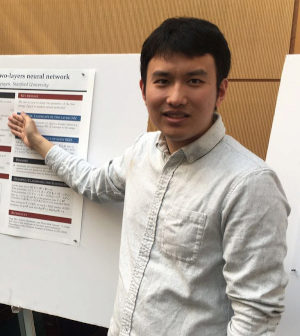Generalization Error of Linearized Neural Networks: Staircase and Double-descent
Song Mei – Stanford University

Abstract
Deep learning methods operate in regimes that defy the traditional statistical mindset. Despite the non-convexity of empirical risks and the huge complexity of neural network architectures, stochastic gradient algorithms can often find the global minimizer of the training loss and achieve small generalization error on test data. As one possible explanation to the training efficiency of neural networks, tangent kernel theory shows that a multi-layers neural network — in a proper large width limit — can be well approximated by its linearization. As a consequence, the gradient flow of the empirical risk turns into a linear dynamics and converges to a global minimizer. Since last year, linearization has become a popular approach in analyzing training dynamics of neural networks. However, this naturally raises the question of whether the linearization perspective can also explain the observed generalization efficacy. In this talk, I will discuss the generalization error of linearized neural networks, which reveals two interesting phenomena: the staircase decay and the double-descent curve. Through the lens of these phenomena, I will also address the benefits and limitations of the linearization approach for neural networks.


